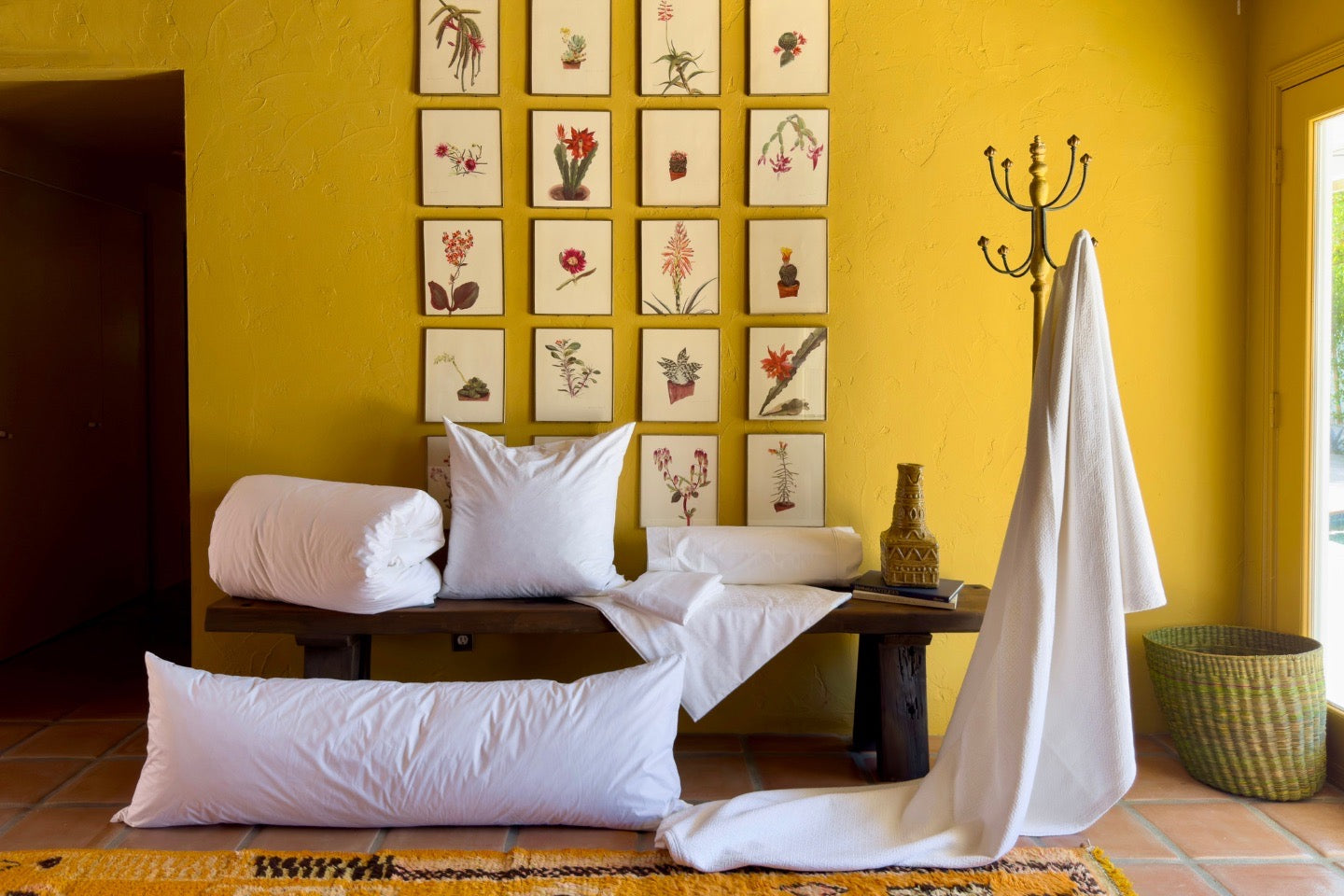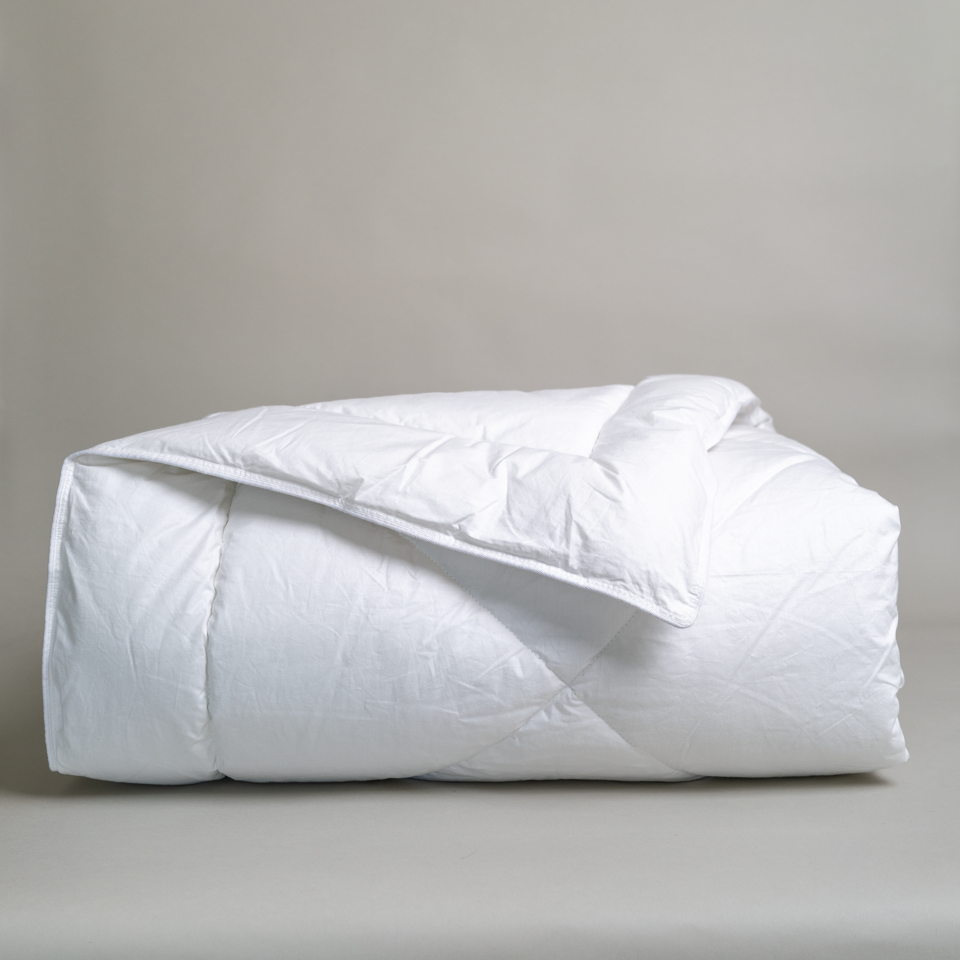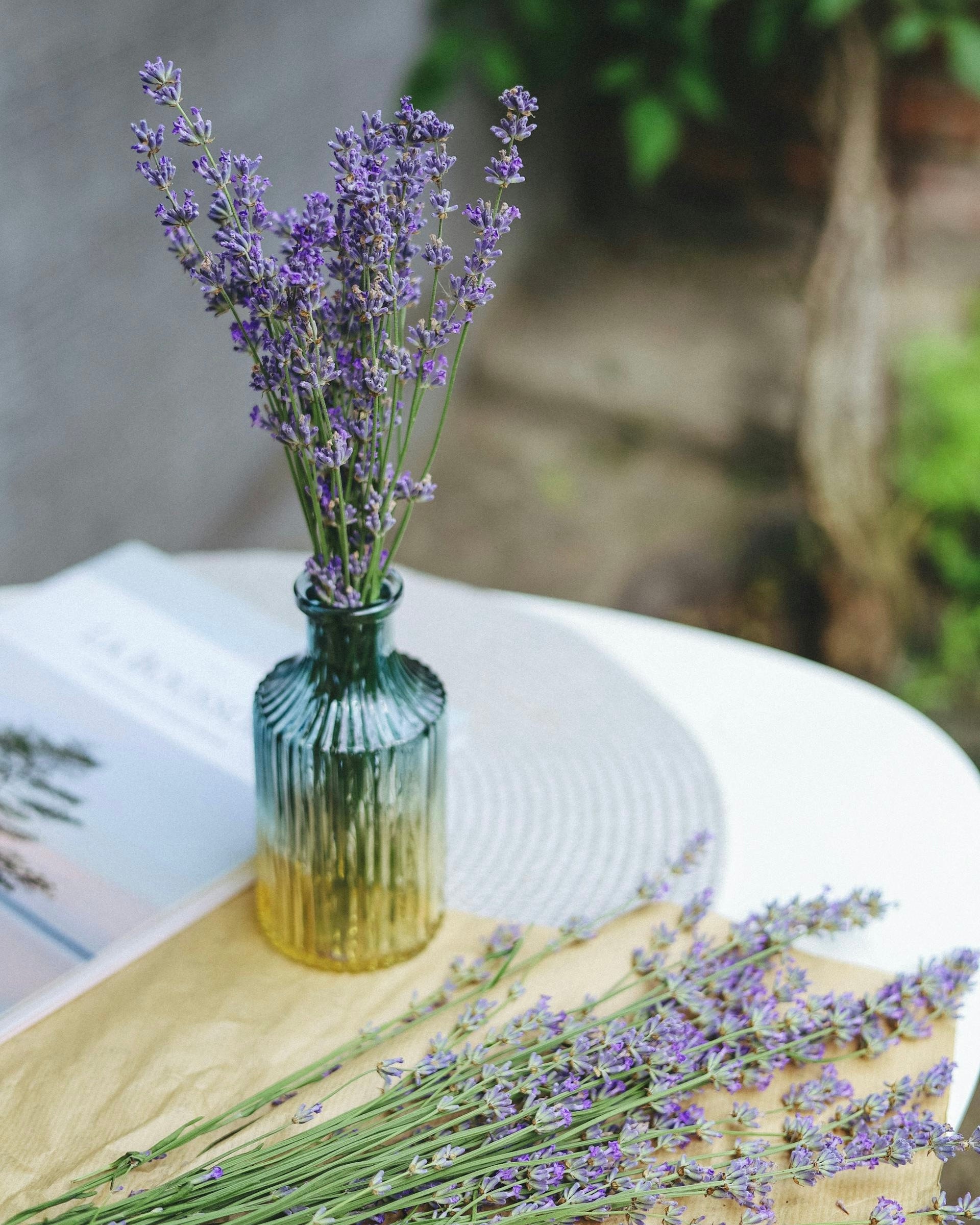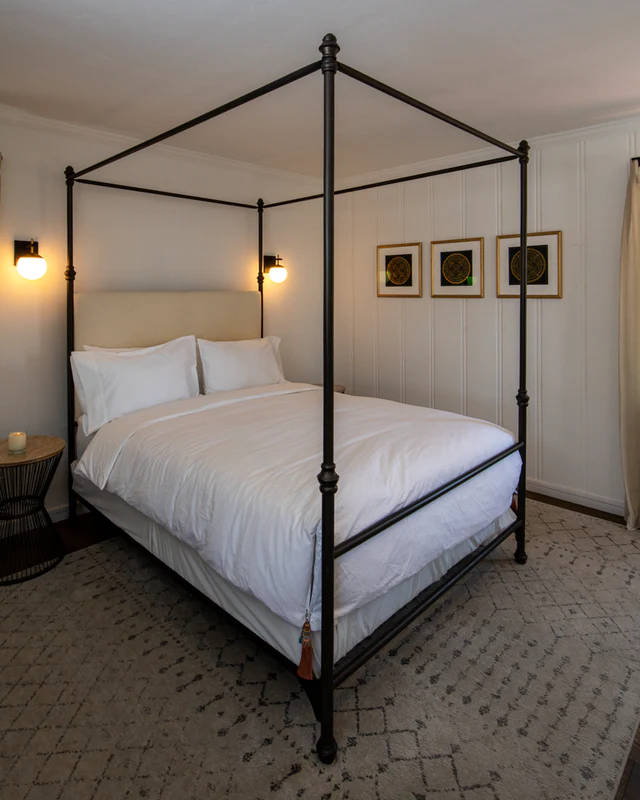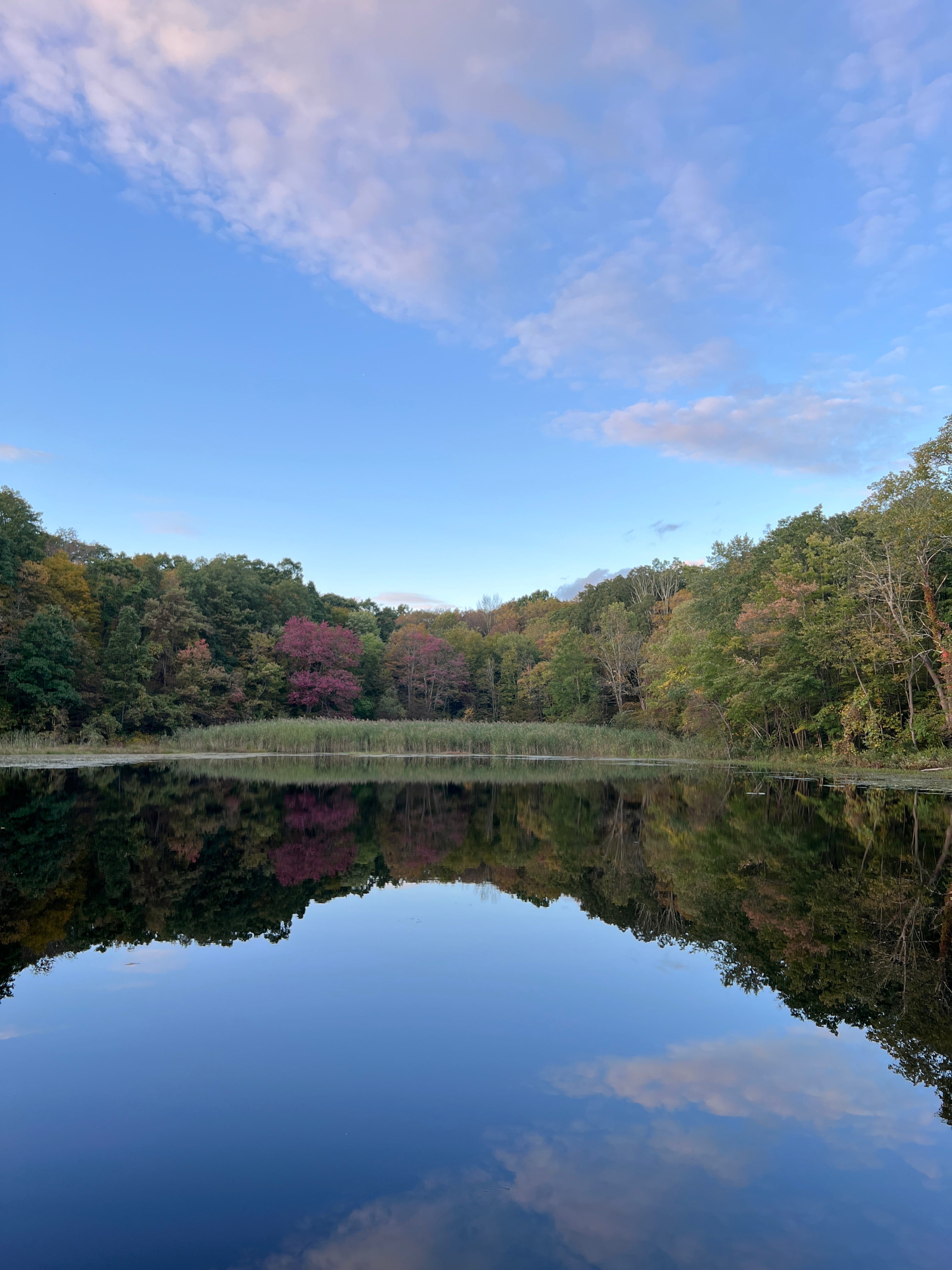Whether it’s a single lavender plant in your herb garden or a field of lavender in Provence, France, lavender appeals to all our senses, from its color and scent to its taste and texture. Even our sense of hearing can be delighted when we listen to the gentle sway of the lavender flowers in the field or the crinkle of dried lavender in a potpourri dish. Lavender’s appeal has led to the discovery of a myriad of uses and benefits of this special herb in our homes and as part of our self-care routines.
Lavender has been used for thousands of years, dating back to ancient Egypt where it was part of the embalming process in which the dead were wrapped in shrouds that had been soaked in lavender water. The Greeks and Romans also valued lavender for its aromatic and medicinal properties. Today, lavender continues to be a staple in various aspects of life, bridging tradition with modern innovation.
Uses and Benefits of Lavender
1. Aromatherapy for relaxation and sleep
English lavender (Lavandula angustifolia) is perhaps the best-known variety, recognized for its calming effect. Lavender essential oil is widely used to reduce stress, anxiety, and promote relaxation. Some controlled trials and pilot studies have shown that lavender's scent can promote calm and lower anxiety, making it a popular choice for diffusers and relaxation practices. In a “Love Letter to Lavender” on healthline.com, the author cites a survey of studies of the effect of lavender on the nervous system that “found inhaled lavender improved sleep in people who are in intensive care or have cancer,” and lavender essential oil relieved pain associated with headache and arthritis and offered antiseptic and skin-healing properties.
Dried lavender flowers are also included in potpourris to be placed out to scent the room or placed within sachets to scent drawers and closets. Lavender's calming properties extend to improving sleep quality. Studies suggest that inhaling lavender oil before bedtime can enhance sleep and reduce symptoms of insomnia. Lavender sachets such as our tiara cottons™ placed under pillows or a few drops of lavender oil in a diffuser can create a serene sleep environment.
Some people, however, may be allergic to lavender or its essential oil. The symptoms of an allergic reaction can include redness, itching, swelling, or hives. If you experience any of these symptoms, discontinue use immediately and consult a healthcare professional.
2. Skincare and hair care
The botanic name Lavandula is derived from lavare, meaning to wash, as the plant was used as perfume in the bath and to scent clean linen, according to An etymological dictionary of modern English. Lavender has made its way into a wide variety of beauty products due to its scent, as well as its other properties beneficial to skin and hair.
Lavender essential oil is a common ingredient in skincare products because of its antibacterial and anti-inflammatory properties. It can help treat minor burns, insect bites, and acne. Lavender oil can also soothe dry or irritated skin and promote the healing of small wounds. Because its scent is offensive to most insects, it makes a great deterrent to protect against bug bites.
In hair care, lavender oil is used to promote healthy hair growth and scalp health. It can help reduce dandruff and improve circulation to the scalp. Adding a few drops of lavender oil to your shampoo or conditioner, or creating a hair mask with lavender, can enhance your hair care routine.
Lavender essential oil is generally safe for most people when used correctly, but it can cause skin irritation or allergic reactions in some individuals. Always dilute lavender essential oil with a carrier oil (such as coconut or jojoba oil) before applying it to the skin. Perform a patch test on a small area of skin to check for any adverse reactions. Lavender essential oil should be used with caution around infants and young children as there’s limited research on the safety of essential oils for this age group. Lavender oil possesses “edocrine-disrupting activities” so that exposure may have hormonal-like effects on young bodies.
3. Culinary Uses
Lavender isn't just for wellness—it's also a unique flavoring agent in the culinary world. Culinary lavender (not all varieties are edible, so you’ll want to be sure you’ve purchased one that is) can be used in baking, making teas, and flavoring savory dishes.
Culinary lavender is typically cultivated from English lavender, according to “How to Cook with Lavender So Your Food Doesn’t Taste Like Soap,” appearing in bon appetit.com. When cooking with lavender, you’re after the enchanting flavor and not the soapy one. That requires the use of high-quality lavender (not lavender essential oil). You may use fresh or dried lavender flowers (buds). As dried lavender buds are more potent than fresh, be sparing when the exact amount is not specified.
In baked goods, the lavender buds may be placed into sugar to allow the transfer of the essential oils and fragrance before the sugar is added to the recipe. You can also infuse simple syrup with lavender to be mixed into lemonade, iced tea, or cocktails. In savory dishes, lavender pairs well with “rich and fatty foods because it cuts through and lifts the overall flavor.” It can be included in a sauce poured over roasted vegetables. Remember: If you’re using lavender in cooking, ensure you are using culinary-grade lavender and follow recipes carefully.
4. Household Cleaning
Lavender essential oil's antibacterial properties make it an excellent addition to homemade cleaning solutions. Adding a few drops to your cleaning products can boost their effectiveness while leaving a pleasant, fresh scent. Lavender-infused cleaning agents can help sanitize surfaces and refresh your home naturally.
5. Natural Insect Repellent
Lavender can act as a natural insect repellent. The scent of lavender is known to deter mosquitoes and other pests. Other than bees, insects will stay away from lavender plants. Placing lavender sachets around your home or using lavender essential oil in homemade insect repellent sprays can help keep bugs at bay without harsh chemicals. It’s also a great herb to plant if you’ve got problems with larger critters like deer and rabbits. They are not fans of the strong scent or the bitter leaves.
Growing Lavender
Originally a Mediterranean herb, lavender is relatively easy to grow in the U.S., making it a great addition to any garden, according to The Old Farmer’s Almanac. It can be planted in spring or fall in an area that receives plenty of sun and has well-drained soil. Unlike other herbs such as basil, lavender is not easy to grow from seed so you may want to begin with starter plants from a plant nursery. Once established, lavender is drought-tolerant and low-maintenance. It also attracts pollinators like bees and butterflies. Planted along a walkway or seating area where it might be gently rustled by the breeze or a pant leg causing it to release its bouquet.
If you live in a cooler climate, you’ll prune in spring, removing about one-third of the top of the plant. I warmer climates, you can prune in fall. The flowering stems can be snipped while the flowers are in bloom or after they fade. If you’re harvesting lavender for drying, cut the stems as long as possible, gather and secure them in bundles, and hang them in a cool, dark place with good circulation. Once fully dried, they can be stored in lidded jars in a cool, dark place or placed into sachets.
Lavender's versatility is truly remarkable, spanning wellness, culinary, and household applications. Its soothing aroma, combined with its practical uses, makes it a cherished herb with both historical significance and modern-day benefits. Whether you're looking to relax, enhance your cooking, or freshen up your home, lavender offers a multitude of advantages that are well worth exploring. By taking precautions such as diluting essential oils, performing patch tests, and consulting healthcare providers when needed, you can enjoy the benefits of lavender while minimizing any possible risk.
We wish you a lavender-scented day and night.
-The Team at down etc
Read more:
Aromatherapy Pillows and Pillowcases for a Great Night’s Sleep
Down Etc Artist Series: Laura McCann, Aromatherapy Creator and Adoratherapy CEO
DISCLAIMER: You should not rely on any of the foregoing as a substitute for, nor does it replace, professional medical or health and wellness advice, diagnosis, or treatment by a healthcare professional. If you have specific concerns or a situation in which you require professional or medical advice, you should consult with an appropriately trained and qualified specialist, such as a licensed physician, psychologist, or other health professional. Never disregard the medical advice of a physician, psychologist, or other health professional, or delay in seeking such advice, because of the information or content offered or provided on the Site. The use of the Site and all information and content contained thereon is solely at your own risk.
Image: Pexels

